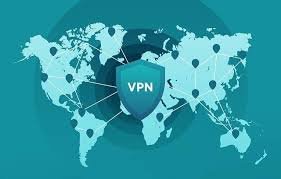Key Takeaways
- VPNs (Virtual Private Networks) are essential in maintaining online user privacy and security.
- They encrypt internet connections, making it difficult for hackers to intercept sensitive data.
- VPNs help users bypass geo-restrictions and access content from different regions.
- Knowing how VPNs work can empower users to make informed decisions about their online security.
Table of Contents
- What Is a VPN?
- Why Use a VPN?
- How VPNs Work
- Benefits of Using VPNs
- Potential Risks and Limitations
- Choosing the Right VPN
- VPN FAQs
- Conclusion
What Is a VPN?
A VPN, or Virtual Private Network, is a tool that creates a secure, encrypted connection between your device and the internet. This tunnel encrypts your data, ensuring privacy and security while you browse. A VPN acts as a middleman between you and the internet, allowing you to connect to websites indirectly, thereby concealing your actual location and identity.
Why Use a VPN?
Using a VPN provides numerous advantages. Primarily, it protects your online activity from being tracked and intercepted by malicious entities. Moreover, VPNs enable you to access content restricted by geographical locations. For instance, accessing a streaming service in another country becomes feasible with a VPN, as seen in recent security news. This ability to bypass geo-restrictions makes VPNs popular for users wanting unrestricted internet access. Additionally, VPNs are essential for travelers who need to access services from their home country that might be blocked abroad. To understand how does a VPN work, knowing that it masks your IP address and encrypts all data transmitted between your device and the web is critical.
How VPNs Work
When you connect to a VPN, it routes your internet traffic through one of its servers, masking your actual IP address. This process encrypts your data, making it unreadable to anyone who tries to intercept it. VPN technology relies on secure protocols that ensure data remains confidential, even if it passes through unsecured networks. An article on tech updates explains that the magic of VPN technology lies in its encryption algorithms that use complex keys to scramble data, making it virtually unbreakable. This sophisticated encryption ensures that even if data is intercepted, it cannot be deciphered without the corresponding decryption key, providing an extra layer of security.
Benefits of Using VPNs
- Enhanced Security:Protects sensitive information from hackers. Even if someone manages to intercept your data, the encryption renders it useless to them. Enhanced security is especially crucial for activities involving sensitive information, such as online banking or accessing work emails.
- Privacy Protection:Anonymizes your online activities. Your IP address is hidden, ensuring your browsing habits cannot be tracked back to you. This anonymity benefits those who must maintain confidentiality in their online interactions.
- Access Control:Allows access to geographically restricted content. This can be particularly useful for streaming services or accessing sites blocked in your country. Whether for watching region-specific content or bypassing government censorship, a VPN can open up a world of possibilities.
- Public Wi-Fi Safety:Secures your connection on public networks. Using a VPN when connected to public Wi-Fi prevents potential cybercriminals on the same network from spying on your activities. Public Wi-Fi in coffee shops and airports is notorious for being less secure, making a VPN crucial for safeguarding your data in such environments.
Potential Risks and Limitations
While VPNs offer significant benefits, there are potential risks to be aware of. Some VPN providers may log user data, which can compromise privacy. It’s essential to scrutinize the privacy policy of any VPN provider to ensure that they uphold a strict no-logs policy. Additionally, VPN usage might result in slightly reduced browsing speeds, depending on the server load and the distance from the VPN server. This slowdown happens because your data travels extra distances and undergoes encryption/decryption processes. Choosing a reliable VPN service that maintains a strict no-logs policy and provides a stable, fast connection is crucial.
Choosing the Right VPN
When selecting a VPN, consider security protocols, no-logging policies, server locations, and connection speeds. Reading user reviews and expert recommendations can also provide valuable insights. A well-rounded VPN provider will offer robust encryption, user-friendly applications, and responsive customer support. It’s also advisable to look for additional features such as kill switches, which automatically disconnect your device from the internet if the VPN connection drops, ensuring that your data is not accidentally exposed.
VPN FAQs
- Do all VPNs slow down your internet speed?Not necessarily. Premium VPNs offer high-speed servers to minimize any speed reduction. The key is to select a provider with a reputation for fast, reliable connections.
- Is using a VPN legal?Yes, in most countries, but always check local regulations. While VPN usage is broadly legal, some regimes have restricted or banned their use. Always ensure that your VPN use complies with the legal framework of your country.
- Can a VPN be hacked?While it’s challenging, no technology is foolproof. Properly using strong passwords, multi-factor authentication, and trustworthy VPN providers can mitigate risks significantly. Staying updated on the latest security practices and patches can also help enhance security.
Conclusion
VPNs are invaluable tools for anyone looking to protect their privacy and enhance their online security. Understanding VPNs and their functionality as cyber threats evolve can help users navigate the digital world safely. You can significantly bolster your online defenses by making informed decisions about which VPN to use, ensuring a more secure and private internet experience. A reliable VPN can transform how you interact with the internet, offering peace of mind and freedom to explore online without compromising security or privacy.
